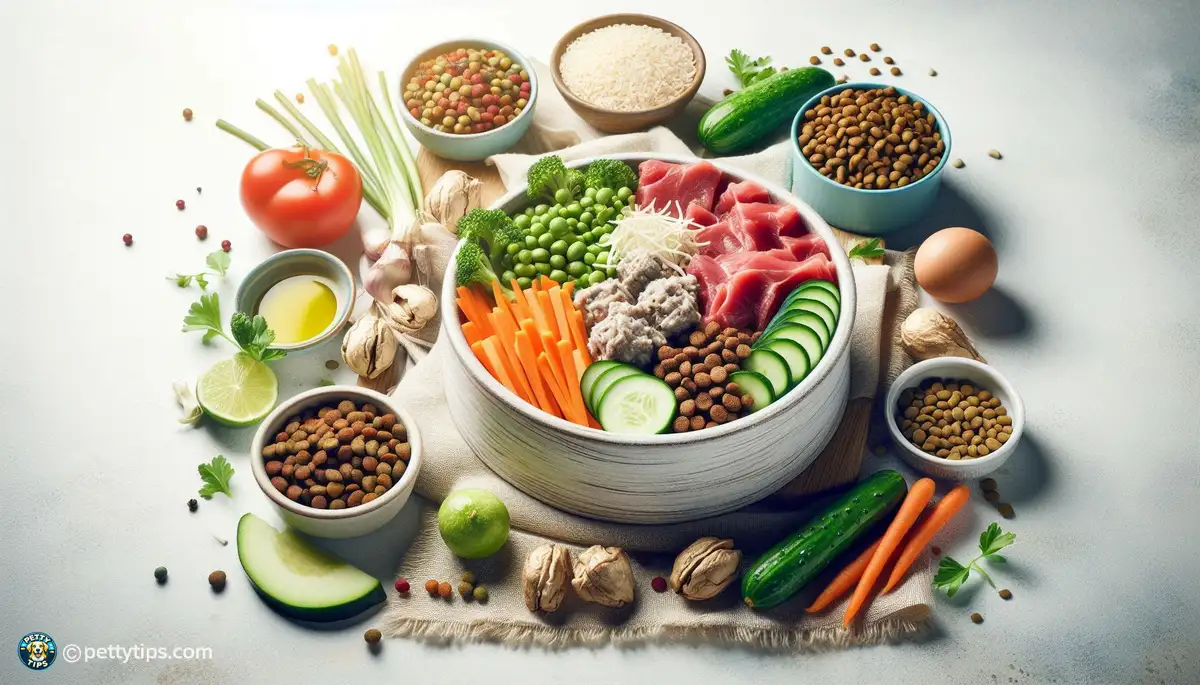
The Importance of Early Socialization for Puppies
Giselle Orta - Sep 04, 2024 - 6 min read


In recent years, there has been a noticeable shift towards homemade dog food recipes. pet owners are increasingly concerned about the quality and safety of commercial pet foods, leading them to explore alternative options for their furry companions. Homemade dog food offers the promise of freshness, control over ingredients, and customization to suit individual dietary needs. But amidst this growing trend, questions arise: Are homemade dog food recipes truly safe and nutritious for our beloved pets?
Homemade dog food recipes vary widely, but they typically consist of a combination of protein, carbohydrates, fats, and essential nutrients. These recipes may include ingredients such as lean meats, grains, vegetables, and supplements to ensure a balanced diet for dogs. Some pet owners opt for raw food diets, while others prefer cooked meals. The appeal lies in the ability to tailor meals to address specific health concerns, allergies, or dietary preferences.
Nutrition plays a crucial role in the overall health and well-being of our canine companions. A well-balanced diet provides essential nutrients to support their immune system, maintain a healthy weight, promote strong bones and muscles, and ensure proper digestion. Dogs require a combination of protein, carbohydrates, fats, vitamins, and minerals to thrive. Therefore, any homemade dog food recipe must be carefully formulated to meet these nutritional needs.
While homemade dog food recipes offer numerous benefits, they also pose certain risks if not prepared and balanced correctly. One of the primary concerns is the risk of nutrient deficiencies or excesses, which can lead to health issues over time. Additionally, improper handling and storage of ingredients can result in contamination and foodborne illnesses for both dogs and their owners.
To mitigate the risks associated with homemade dog food, it's essential to ensure that recipes are nutritionally adequate for canine consumption. This involves consulting with a veterinarian or animal nutritionist to develop a well-balanced diet plan tailored to your dog's specific needs. Factors such as age, breed, size, activity level, and any existing health conditions should be taken into account when formulating homemade meals.
Given the complexity of canine nutrition, seeking professional guidance is crucial for pet owners embarking on the homemade dog food journey. Veterinarians and certified animal nutritionists can provide valuable insights and recommendations to help create balanced recipes that meet your dog's nutritional requirements. They can also offer guidance on ingredient selection, portion sizes, and meal frequency to ensure optimal health and well-being.
When preparing homemade dog food, opt for high-quality ingredients that are fresh, wholesome, and free from additives or preservatives. Select lean meats, such as chicken, turkey, or beef, and incorporate a variety of vegetables and grains to provide essential nutrients and fiber. Avoid ingredients that are toxic to dogs, such as onions, garlic, grapes, and chocolate.
To ensure nutritional balance, homemade dog food recipes should include the right proportions of protein, carbohydrates, and fats. Aim for a ratio that aligns with your dog's dietary needs and energy requirements. protein sources should be the foundation of the diet, while carbohydrates and fats should be included in moderation to support overall health and energy levels.
In addition to macronutrients, homemade dog food recipes should include essential vitamins, minerals, and supplements to meet your dog's unique nutritional needs. Consider incorporating sources of omega-3 fatty acids, such as fish oil or flaxseed, to promote healthy skin and coat. Calcium, phosphorus, and vitamin D are essential for bone health, while antioxidants support immune function and overall vitality.
In conclusion, homemade dog food recipes can be safe and nutritious for our canine companions when prepared with care and attention to nutritional balance. While the appeal of homemade meals lies in the ability to customize and control ingredients, it's essential to approach this dietary choice responsibly. Consulting with a veterinarian or animal nutritionist is paramount to ensure that homemade dog food recipes meet all of your dog's dietary requirements and support their long-term health and well-being.
Preparing homemade dog food is a labor of love that reflects our commitment to providing the best possible care for our furry family members. By choosing high-quality ingredients, balancing macronutrients, and incorporating essential nutrients, we can create wholesome meals that nourish our dogs from the inside out. With proper guidance and attention to detail, homemade dog food recipes can offer a rewarding and nutritious alternative to commercial pet foods.